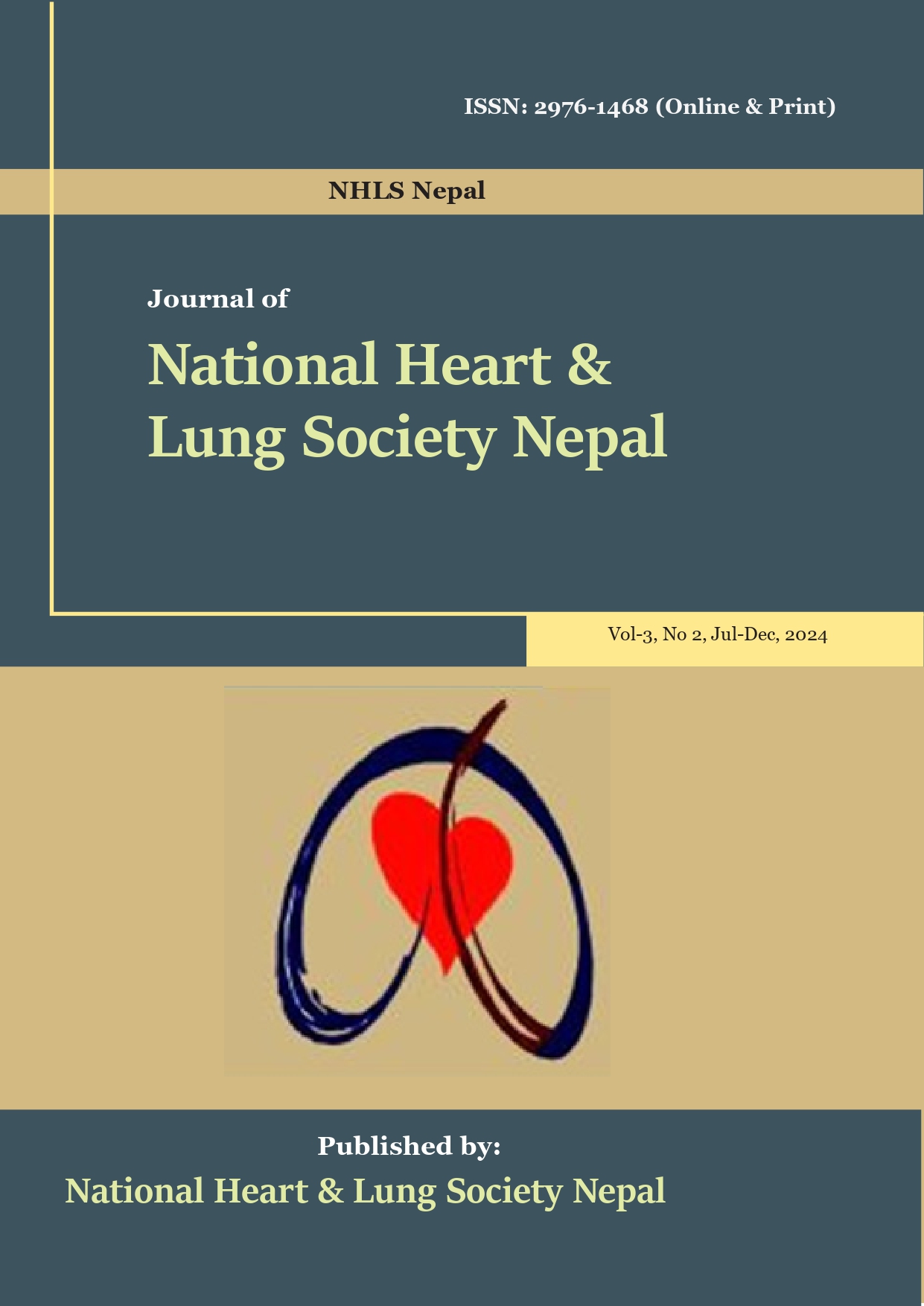Correlation of Serum Lipase Level and APACHE II Score in Predicting Outcomes in Patients with Acute Pancreatitis in Western Nepal
DOI:
https://doi.org/10.3126/jnhls.v3i2.71665Abstract
Background: Acute pancreatitis (AP) is a disease with highly variable outcomes and high mortality rate. There are various sets of scoring systems and biomarkers to make prediction of its outcomes, but they have some drawbacks. This encouraged us to study on simple tests which would help in making diagnosis as well as act as an indicator of the outcomes in a patient with AP. The aim of this study is to correlate noble scoring system like Acute physiology and chronic health evaluation II (APACHE II) with serum lipase level in predicting outcomes in a patient with AP.
Methods: Hospital based prospective descriptive study was done. The comparison of APACHE II score and Serum lipase level to predict the outcomes in terms of complications, length of hospital stay and in hospital mortality in AP was done using Pearson’s correlation, chi square test, Fischer’s exact test.
Results: Of 90 patients, 37.78% had severe disease and 4.4 % died. APACHE II score had statistically significant correlation and association with length of hospital stay, complication and in hospital mortality (i. e. p<0.05). Serum lipase had no statistically significant correlation and association with Length of hospital stay (p=0.792), complications(p=0.379) and in hospital mortality(p=0.597).
Conclusion: APACHE II can be used to predict the outcomes in the patients with AP. Serum lipase level cannot be used as a predictor of outcomes in AP although it is one of the noble biomarkers and for the diagnosis of AP and easily available in most of the health care centers.




